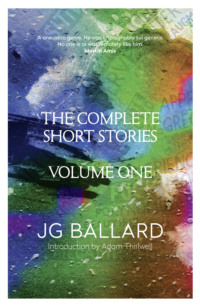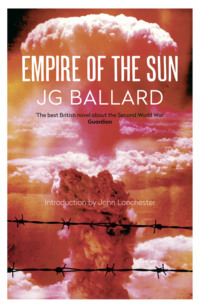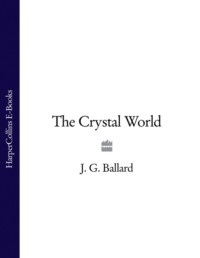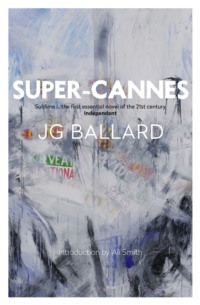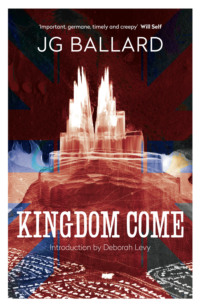
Полная версия
The Kindness of Women
Later I realised that this 17-year-old daughter of a once well-to-do Minsk family was scarcely more than a child herself. On my cycle rides I had been shocked by the poverty of the White Russian and Jewish refugees who lived in the tenement districts of Hongkew. It was one thing for the Chinese to be poor, but it disturbed me to see Europeans reduced to such a threadbare state. In their faces there was a staring despair that the Chinese never showed. Once, when I cycled past a dark tenement doorway, an old Russian woman told me to go away and shouted that my mother and father were thieves. For a few days I had believed her.
The refugees stood in their patched fur coats on the steps of the Park Hotel, hoping to sell their old-fashioned jewellery. The younger women had painted their mouths and eyes, trying bravely to cheer themselves up, I guessed. They called to the American and British officers going into the hotel, but what they were selling my mother had never been able to say – they were giving French and Russian lessons, she told me at last.
Always worried by my homework, and aware that many of the White Russians spoke excellent French, I had asked Olga if she would give me a French lesson like the young women at the Park Hotel. She sat on the bed while I hunted through my pocket dictionary, shaking her head as if I were some strange creature at a zoo. Worried that I had hurt her feelings by referring to her family’s poverty, I gave Olga one of my silk shirts, and asked her to pass it on to her invalid father. She had held it in her hands for fully five minutes, like one of the vestments used in the communion services at Shanghai Cathedral, before returning it silently to my wardrobe. Already I had noticed that the White Russian governesses possessed a depth of female mystery that the mothers of my friends never remotely approached.
‘Yes, James?’ Olga hung the fur cape on its rack, and slipped my mother’s breakfast gown over her shoulders. ‘Have you finished your holiday book? You’re very restless today.’
‘I’m thinking about the war, Olga.’
‘You’re thinking about it every day, James. You and General Chiang think about it all the time. I’m sure he would like to meet you.’
‘Well, I could meet him …’ As it happened, I did sometimes feel that the Generalissimo was not giving his fullest attention to the war. ‘Olga, do you know when the war will begin?’
‘Hasn’t it already begun? That’s what everyone says.’
‘Not the real war, Olga. The war in Shanghai.’
‘Is that the real war? Nothing is real in Shanghai, James. Why don’t you ask your father?’
‘He doesn’t know. I asked him after breakfast.’
‘That’s a pity. Are there many things he doesn’t know?’
Still wearing the breakfast robe, Olga sat on my father’s bed, her hand stroking the satin cover and smoothing away the creases. She was caressing the imprint of my father’s shoulders, and for a moment I wondered if she was going to slip between the sheets.
‘He does know many things, but …’
‘I can remind you, James, it’s Friday the 13th. Is that a good day for starting a war?’
‘Hey, Olga …!’ This news brightened everything. I rushed to the window – superstitions, I often noticed, had a habit of coming true. ‘I’ll tell you if I see anything.’
Olga stood behind me, calming me with a hand on my ear. Much as she loved the intimacy of my mother’s clothes and the ripe odour of my father’s riding jacket, she rarely touched me. She stared at the distant skyline along the Bund. Smoke rose from the coal-burning boilers of the older naval vessels. The black columns jostled for space as the warships changed their moorings, facing up to each other with sirens blasting. The darker light gave Olga’s face the strong-nosed severity of the mortuary statues I had seen in Shanghai cemetery. She lifted the breakfast robe, staring through the veil of its fine fabric as if seeing a dream of vanished imperial Russia.
‘Yes, James, I think they’ll start the war for you today …’
‘Say, thanks, Olga.’
But before the war could start, my mother and father returned unexpectedly from the Country Club. With them were two British officers in the Shanghai Volunteer Force, wearing their tight Great War uniforms. I tried to join them in my father’s study, but my mother took me into the garden and in a strained way pointed to the golden orioles drinking from the edge of the swimming pool.
I was sorry to see her worried, as I knew that my mother, unlike Olga, was one of those people who should never be worried by anything. Trying not to annoy her, I spent the rest of the afternoon in my playroom. I listened to the sirens of the battle-fleets and marshalled my toy soldiers. On the next day, Bloody Saturday as it would be known, my miniature army at last came to life.
I remember the wet monsoon that blew through Shanghai during that last night of the peace, drowning the sounds of Chinese sniper fire, and the distant boom of Japanese naval guns striking at the Chinese shore batteries at Woosung. When I woke into the warm, sticky air the storm had passed, and the washed neon signs of the city shone ever more vividly.
At breakfast my mother and father were already dressed in their golfing clothes, though when they left in the Packard a few minutes later my father was at the wheel, the chauffeur beside him, and they had not taken their golf clubs.
‘Jamie, you’re to stay home today,’ my father announced, staring through my eyes as he did when he had unfathomable reasons of his own. ‘You can finish your Robinson Crusoe.’
‘You’ll meet Man Friday and the cannibals.’ My mother smiled at this treat in store, but her eyes were as flat as they had been when our spaniel was run over by the German doctor in Columbia Road. I wondered if Olga had died during the night, but she was watching from the door, pressing the lapels of her dressing gown to her neck.
‘I’ve already met the cannibals.’ However exciting, Crusoe’s shipwreck palled by comparison with the real naval disaster about to take place on the Whangpoo river. ‘Can we go to the Tattoo? David Hunter’s going next week …’
The Military Tattoo staged by soldiers of the British garrison was filled with booming cannon, thunderflashes and bayonet charges, and recreated the bravest clashes of the Great War, the battles of Mons, Ypres and the Gallipoli landings. In a sense, the make-believe of the Tattoo might be as close as I would ever get to a real war.
‘Jamie, we’ll see – they may have to cancel the Tattoo. The soldiers are very busy.’
‘I know. Then can we go to the Hell-drivers?’ This was a troupe of American dare-devil drivers, who crashed their battered Fords and Chevrolets through wooden barricades covered with flaming gasoline. The sight of these thrillingly rehearsed accidents for ever eclipsed the humdrum street crashes of Shanghai. ‘You promised …’
‘The Hell-drivers aren’t here any more. They’ve gone back to Manila.’
‘They’re getting ready for the war.’ In my mind I could see these laconic Americans, in their dashing goggles and aviator’s suits, crashing through the flaming walls as they answered a salvo from the Idzumo. ‘Can I come to the golf club?’
‘No! Stay here with Olga! I won’t tell you again …’ My father’s voice had an edge of temper that I had noticed since the labour troubles at his cotton mill in Pootung, on the east bank of the river. I wondered why Olga watched him so closely when he was angry. Her toneless eyes showed a rare and almost hungry alertness, the expression I felt on my face when I was about to tuck into an ice-cream sundae. One of the communist union organisers who threatened to kill my father had stared at him in the same way as we sat in the Packard outside his office in the Szechuan Road. I worried that Olga wanted to kill my father and eat him.
‘Do I have to? Olga listens all the time to French dance music.’
‘Well, you listen with her,’ my mother rejoined. ‘Olga can teach you how to dance.’
This was a prospect I dreaded, an even greater torture than the promise of unending peace. When Olga touched me, it was in a distant but oddly intimate way. As I lay in bed at night she would sometimes undress in my bathroom with the door ajar. Later I guessed that this was her way of proving to herself that I no longer existed. As soon as my parents left for the golf club my one intention was to give her the slip.
‘David said that Olga—’
‘All right!’ Irritated by the ringing telephone, which the servants were too nervous to answer, my father relented. ‘You can see David Hunter. But don’t go anywhere else.’
Why was he frightened of Shanghai? Despite his quick temper, my father easily gave in, as if events in the world were so uncertain that even my childish nagging carried weight. He was too distracted to play with my toy soldiers, and he often looked at me in the same firm but dejected way in which the headmaster of the Cathedral School gazed at the assembled boys during morning prayers. When he walked to the car he stamped his spiked golf shoes, leaving deep marks in the gravel, like footprints staking a claim to Crusoe’s beach.
Even before the Packard had left the drive, Olga was reclining on the verandah with my mother’s copies of Vogue and the Saturday Evening Post. At intervals she called out to me, her voice as remote as the sirens on the river buoys at Woosung. I guessed that she knew about my afternoon cycle rides around Shanghai. She was well aware that I might be kidnapped or robbed of my clothes in one of the back alleys of the Bubbling Well Road. Perhaps the terrors of the Russian civil war, the long journey with her parents through Turkey and Iraq to this rootless city at the mouth of the Yangtse, had so disoriented her that she no longer cared if the child in her charge was killed.
‘Who did your father let you see, James?’
‘David Hunter. He’s my closest friend. I’m going now, Olga.’
‘You have so many closest friends. Tell me if the war begins, James.’
She waved, and I was gone. In fact, the last person in Shanghai I wanted to see was David. During the summer holidays my schoolfriends and I played homeric games of hide-and-seek that lasted for weeks and covered the whole of Shanghai. As I drove with my mother to the Country Club or drank iced tea in the Chocolate Shop I was constantly watching for David, who might break away from his amah and lunge through the crowd to tap me on the shoulder. These games added another layer of strangeness and surprise to a city already too strange.
I wheeled my cycle from the garage, buttoned my blazer and set off down the drive. Legs whirling like the blades of an eggbeater, I swerved into Amherst Avenue and overtook a column of peasants trudging through the western suburbs of the city. Refugees from the countryside now occupied by the Chinese and Japanese armies, they plodded past the great houses of the avenue, their few possessions on their backs. They laboured towards the distant towers of downtown Shanghai, unaware of everything but the hard asphalt in front of them, ignoring the chromium bumpers and blaring horns of the Buicks and Chryslers whose Chinese chauffeurs were trying to force them off the road.
Standing on my pedals, I edged past a rickshaw loaded with bales of matting, on which perched two old women clutching the walls and roof of a dismantled hovel. I could smell their bodies, crippled by a lifetime of heavy manual work, and the same rancid sweat and hungry breath of all impoverished peasants. But the night’s rain still soaked their black cotton tunics, which gleamed in the sunlight like the rarest silks on the fabric counters in the Sun Sun department store, as if the magic of Shanghai had already begun to transform these destitute people.
What would happen to them? My mother was studiously vague about the refugees, but Olga told me in her matter-of-fact way that most of them soon died of hunger or typhus in the alleys of Chapei. Every morning on my way to school I passed the trucks of the Shanghai Municipal Authority that toured the city, collecting the hundreds of bodies of Chinese who had died during the night. I liked to think that only the old people died, though I had seen a dead boy of my own age sitting against the steel entrance grille of my father’s office block. He held an empty cigarette tin in his white hands, probably the last gift to him from his family before they abandoned him. I hoped that the others became bar-tenders and waiters and Number 3 girls at the Great World Amusement Park, and my mother said that she hoped so too.
Putting aside these thoughts, and cheered by the day ahead, I reached the Avenue Joffre and the long tree-lined boulevards of the French Concession that would carry me to the Bund. Quick-tempered French soldiers guarded the sand-bagged checkpoint by the tramline terminus. They stared warily at the empty sky and spat at the feet of the passing Chinese, hating this ugly city to which they had been exiled across the world. But I felt a surge of excitement on entering Shanghai. To my child’s eyes, which had seen nothing else, Shanghai was a waking dream where everything I could imagine had already been taken to its extreme. The garish billboards and nightclub neon signs, the young Chinese gangsters and violent beggars watching me keenly as I pedalled past them, were part of an overlit realm more exhilarating than the American comics and radio serials I so adored.
Shanghai would absorb everything, even the coming war, however fiercely the smoke might pump from the warships in the Whangpoo river. My father called Shanghai the most advanced city in the world, and I knew that one day all the cities on the planet would be filled with radio-stations, hell-drivers and casinos. Outside the Canidrome the crowds of Chinese and Europeans were pushing their way into the greyhound arena, unconcerned by the Kuomintang armies around the city waiting to attack the Japanese garrison. Gamblers jostled each other by the betting booths of the jai alai stadium, and the morning audience packed the entrance of the Grand Theatre on the Nanking Road, eager to see the latest Hollywood musical, Gold-Diggers of 1937.
But of all the places of wonder, the Great World Amusement Park on the Avenue Edward VII most amazed me, and contained the magnetic heart of Shanghai within its six floors. Unknown to my parents, the chauffeur often took me into its dirty and feverish caverns. After collecting me from school, Yang would usually stop the car outside the Amusement Park and carry out one or other of the mysterious errands that occupied a large part of his day.
A vast warehouse of light and noise, the Amusement Park was filled with magicians and fireworks, slot machines and sing-song girls. A haze of frying fat gleamed in the air, and formed a greasy film on my face, mingling with the smell of joss-sticks and incense. Stunned by the din, I would follow Yang as he slipped through the acrobats and Chinese actors striking their gongs. Medicine hawkers lanced the necks of huge white geese, selling the cups of steaming blood to passers-by as the ferocious birds stamped their feet and gobbled at me when I came too close. While Yang murmured into the ears of the mahjong dealers and marriage brokers, I peered between his legs at the exposed toilets in the lavatory stalls and at the fearsome idols scowling over the temple doorways, at the mysterious peep-shows and massage booths with their elegant Chinese girls, infinitely more terrifying than Olga, in embroidered high-collared robes slit to expose their thighs.
This Saturday, however, the Great World was closed. The dance platforms, dried-fish stalls and love-letter booths had been dismantled, and the municipal authorities had turned the ancient building into a refugee camp. Hundreds of frantic Chinese were forcing their way into the ramshackle structure, held back by a cordon of Sikh police in sweat-stained khaki turbans. Like a team of carpet-beaters, the Sikhs lashed at the broken-toothed peasant farmers with their heavy bamboo staves. A burly British police sergeant waved his service revolver at the monkey-like old women with bound feet who tried to push past him, their callused fists punching his chest.
I stood on the opposite sidewalk, listening to the sirens sounding from the river, a great moaning of blind beasts challenging each other. For the first time I guessed that war of a kind had already come to Shanghai. Buffeted by the Chinese office clerks, I steered my cycle along the gutter, and squeezed past an armoured riot van of the Shanghai Police, with its twin-handled Thompson machine-gun mounted above the driver’s cabin.
Breathless, I rested in the doorway of a funeral parlour. The elderly undertaker sat among the coffins at the rear of the shop, white fingers flicking at the beads of his abacus. The clicks echoed among the empty coffins, and reminded me of the superstition that Yang had graphically described, snapping his fingers in front of my nose. ‘When a coffin cracks, the Chinese undertaker knows he will sell it …’
I listened to the abacus, trying to see if the coffins gave a twitch when they cracked. Soon a lot of coffins in Shanghai would be cracking. The old man’s fingers flicked faster as he watched me with his vain, dreamy eyes. Was he adding up all those who were going to die in Shanghai, trying to reach my own number, somewhere among the cracking coffins and clicking beads?
Behind me a car horn blared into the crowd. A white Lincoln Zephyr was forcing its way through the traffic, hemmed in by the rickshaw coolies and refugees clambering into the entrance of the Amusement Park. David Hunter knelt on the rear seat beside his Australian nanny, blond hair in his eyes as he squinted at the pavement. Forgetting the coffins and the clicking abacus, I pushed my cycle along the gutter, aware that David would see me once the traffic had cleared.
An air-raid klaxon sounded from one of the office buildings, overlaid by a heavy, sustained rumble like a collapsing sky. A shouting coolie strode towards me, bales of firewood on a bamboo pole across his shoulders, from which the veins stood out like bloated worms. Without pausing, he kicked the cycle out of my hands. I bent down to rub my bruised knees, and tried to reach the handlebars, but the rush of feet knocked me to the ground. Winded, I lay among the old lottery tickets, torn newspapers and straw sandals as the white Lincoln cruised past. Playing with his blond fringe behind the passenger window, David frowned at me in his pointy way, unable to recognise me but puzzled why an English boy in a Cathedral School blazer had chosen this of all moments to roll about in a filthy gutter.
The klaxon wailed, keening at the sky. Chinese office workers, women clerks and hotel waiters were running down the Nanking Road from the Bund. An immense cloud of white steam rose from the Whangpoo river behind them, flashes of gunfire reflected in its lower surface. Around it circled three twin-engined bombing planes, banking as they flew through its ashen billows.
A squadron of Chinese aircraft were bombing the Idzumo and the Japanese cotton-mills at Yangtsepoo, little more than a mile from the Bund across the Garden Bridge. The boom of heavy guns jarred the windows of the office buildings in the Thibet Road. A tram clanked past me towards the Bund, its passengers leaping into the road. High above them, on the roof of the Socony-Vacuum building, stood a party of unconcerned Europeans in white tennis clothes, binoculars in hand, pointing out details of the spectacle to each other.
Had the war really started? I was expecting something as organised and disciplined as the Military Tattoo. The planes lumbered through the air, as if the pilots were bored by their targets and were circling the Idzumo simply to fill in time before returning to their airfield. The French and British warships sat at their moorings near the Pootung shore, signal lights blinking softly from their bridges, a vaguely curious commentary on the bombing display down-river.
Mounting my cycle, I straightened the handlebars and brushed the dust from my blazer – the officious junior masters at the school liked to roam the city in their spare time, reporting anyone untidily dressed. I set off after the empty tram, steering between the polished rails. When it neared the Bund the conductor dismounted, swearing at the driver and waving his leather cash bag. The tram’s warning bell clanged at the empty street, watched by groups of Chinese clerks pressing themselves into the doorways of the office buildings.
A water-spout rose from the choppy waves beside the bows of the Idzumo, hovered for a second and then surged upwards in a violent cascade. Arms of hurtling foam punched through the air and soared high above the radio aerials and mast-tops of the ancient cruiser. A second squadron of Chinese bombers swept in formation down the Whangpoo, midway between the Bund and the Pootung shore, where my father’s cotton mill lay behind a veil of greasy smoke. One of the planes lagged behind the others, the pilot unable to keep his place in the formation. He rolled his wings from side to side, like the stunt pilots at the aerobatic displays at Hungjao Airfield.
‘Jamie, leave your bike! Come with us!’
The white fenders of the Lincoln Zephyr had crept behind me. David’s Australian nanny was shouting to me, her arms stretched across the shoulders of the nervous Chinese chauffeur. Steadying her straw hat with one hand, she waved me towards the car. Nurse Arnold had always been easy-going and friendly, so much more pleasant to me than Olga, and I was surprised by her bad temper. David had recognised me, a gleam of triumph in his eyes. He brushed the blond hair from his forehead, aware that he was about to make the first capture of our marathon game of hide-and-seek.
The Idzumo was laying smoke around itself. Scrolls of oily vapour uncoiled along its bows. Through the sooty clouds I could see the tremble of anti-aircraft fire, the sounds lost in the monotonous drone of the Chinese bombers.
‘Jamie, you stupid …!’
I pedalled away from them into a wall of noise and smoke. Glass was falling from the windows of my father’s building in Szechuan Road. Office girls darted from the doorways, their white blouses speckled with fine needles. My front wheel jolted over a piece of masonry shaken loose from a cornice. While I straightened the pedals a low-flying bomber veered away from the Japanese anti-aircraft fire. It flew above the Bund, exposed its open bombing racks and released two bombs towards the empty sampans moored to the quay.
Eager to watch the water-spouts, I mounted my cycle, but a pair of powerful hands gripped my armpits. A uniformed British police sergeant whirled me off my feet. He kicked away my cycle and crouched by the steps of the Socony building. As he held me against his hip the metal hammer of his revolver tore the skin from my knee.
Exploding debris burst between the hotels and department stores of the Nanking Road and filled the street with white ash. A wave of burning air struck my chest and threw me to the ground beside the sergeant. Chinese office workers with raised hands ran towards us through the billows of dust, blood streaming from their foreheads. One of the stray bombs had fallen into the Palace Hotel, and the other into the Avenue Edward VII beside the Great World Amusement Park. The buildings in the Szechuan Road rocked around us, shaking a cascade of broken glass and roofing tiles into the street.
Beside the kerb a matronly Eurasian woman stepped from her car, blood running from her ear. She touched it discreetly with a silk handkerchief as the police sergeant propelled me towards her.
‘Keep him here!’ He jerked my shoulders, as if I were a sleeping doll, and he were trying to wake me. ‘Lad, you stay with her!’
When he ran towards the Nanking Road the Eurasian woman released my hand, waving me away and too distracted to be bothered with me. Blood seeped down my leg, staining my white socks. Looking at the thin trickle, I noticed that I had lost one of my shoes. My head felt empty, and I touched my face to make sure that it was still there. The explosion had sucked all the air from the street and it was difficult to breathe. Gesturing to me in an absent way, the Eurasian woman wandered through the debris, wiping the dust from her leather handbag. The blood ran from her ear as she stared at the broken glass, trying to recognise the windows of her own apartment.




